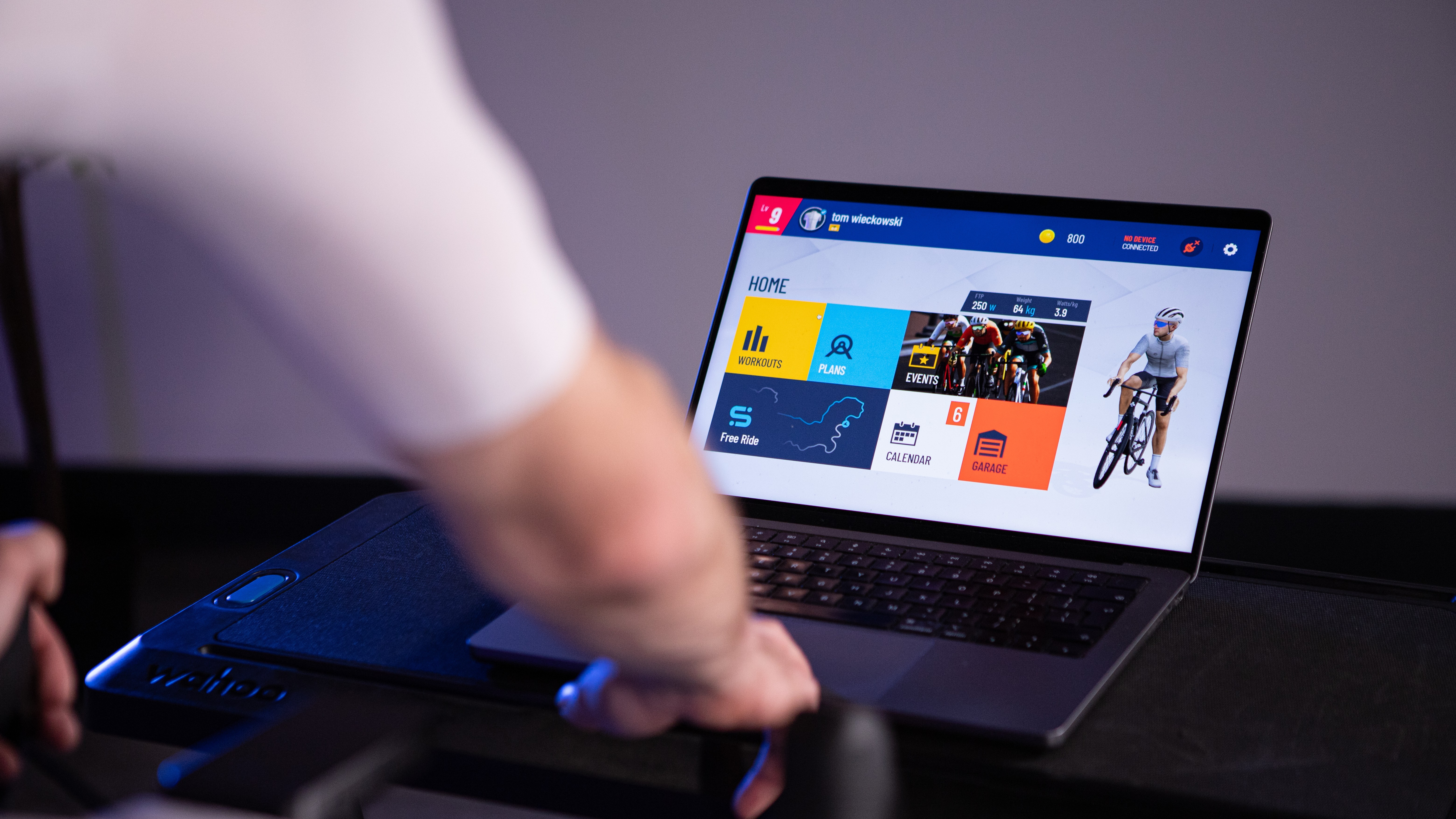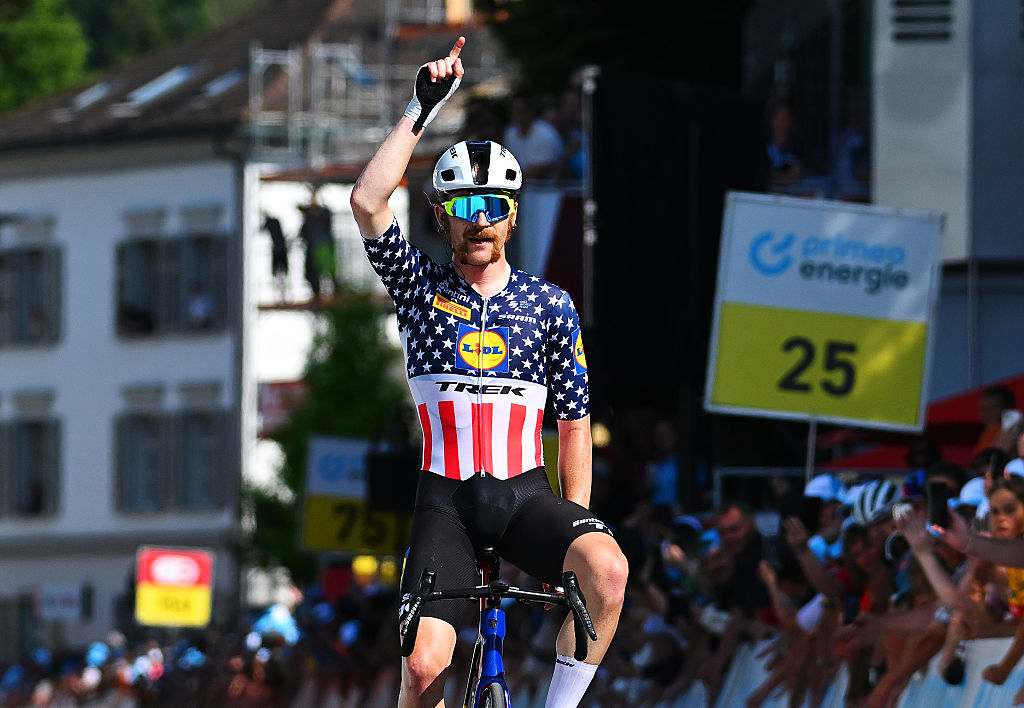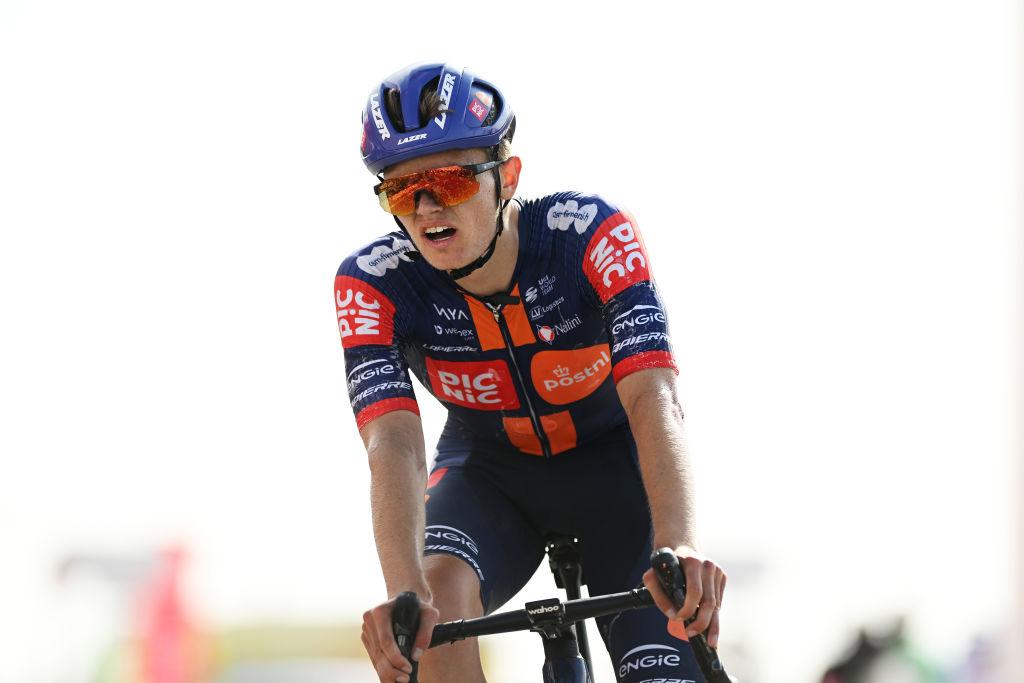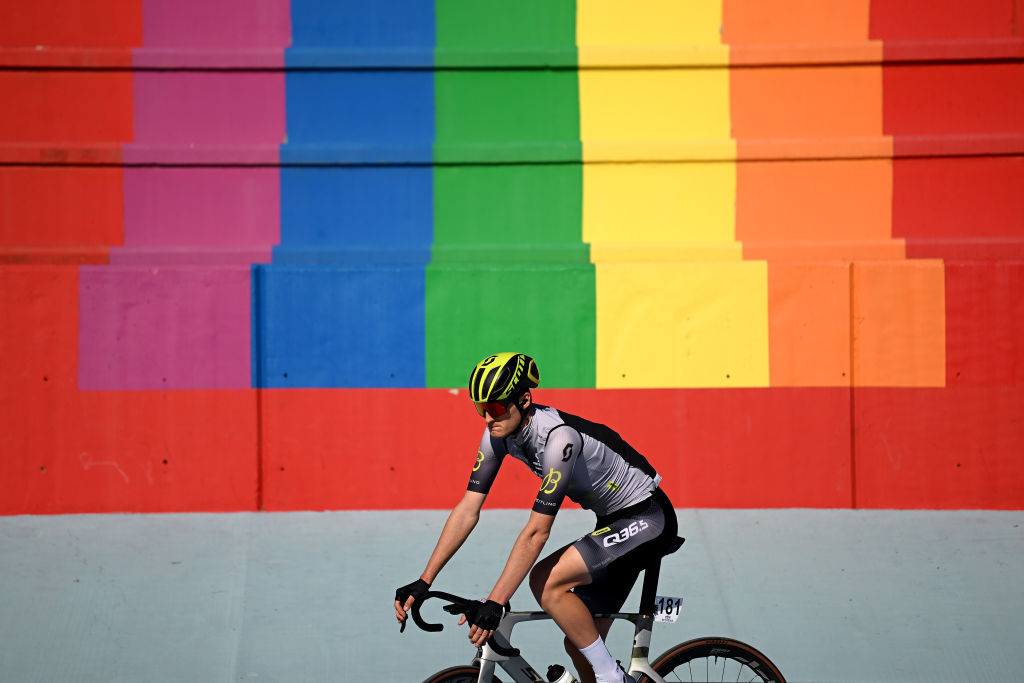'Manx Express' takes first Tour stage in long, hot day
Team Columbia's Mark Cavendish claimed his much-anticipated first victory in the Tour de France on...
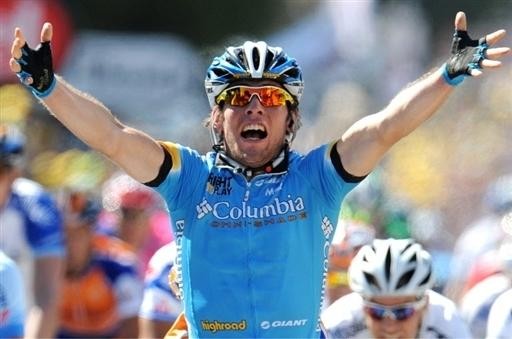
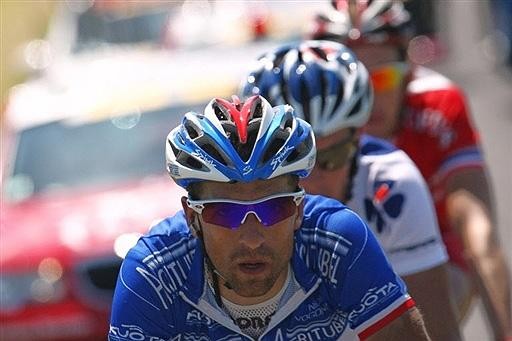
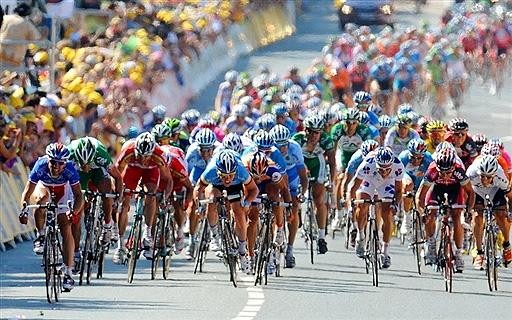
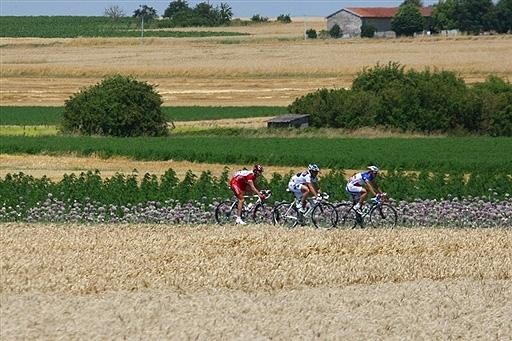
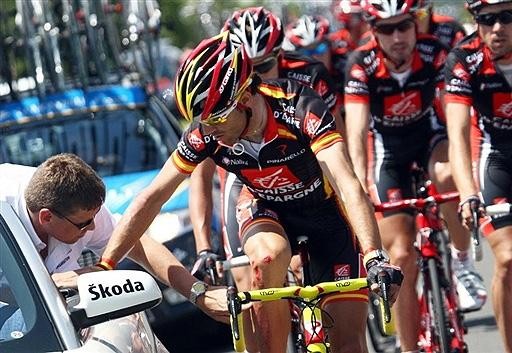
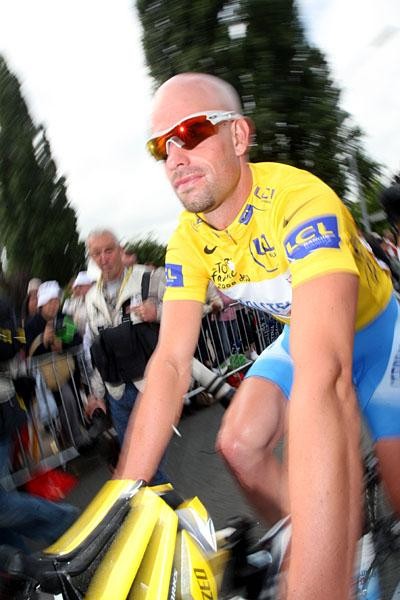
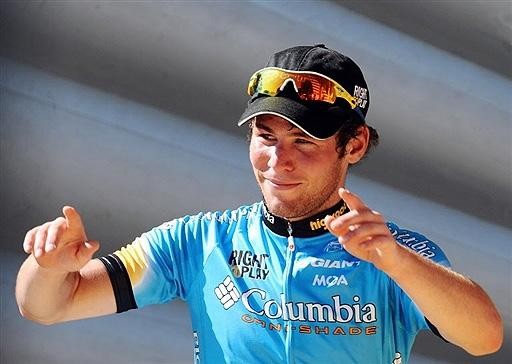
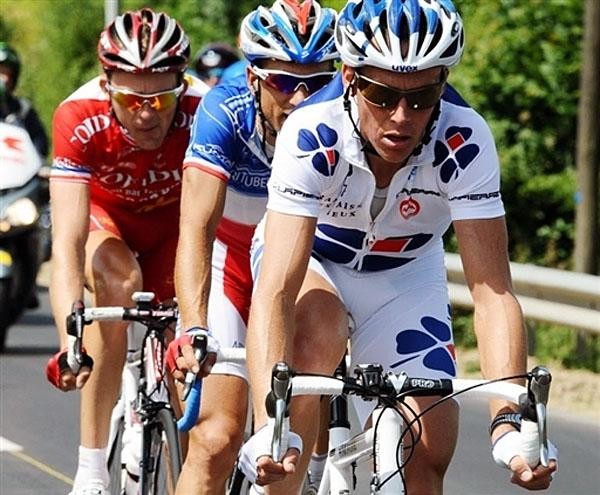
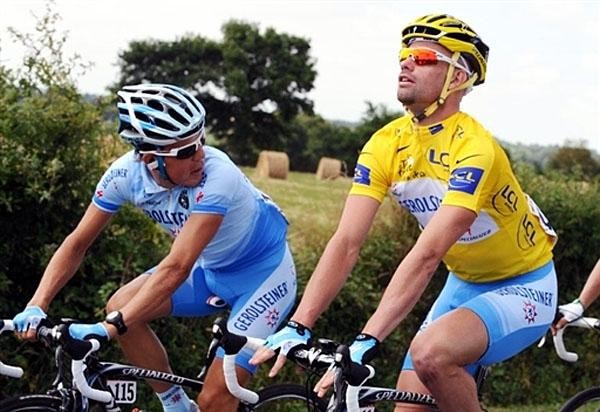
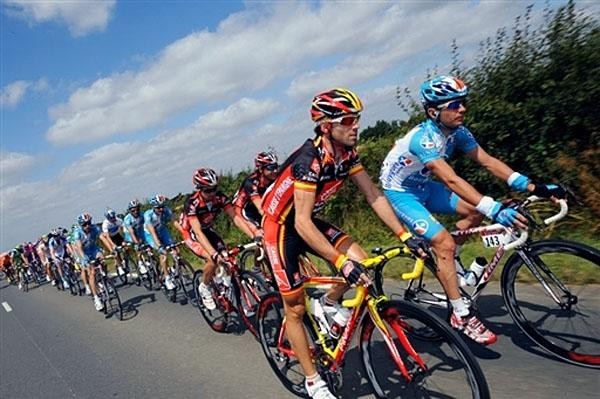

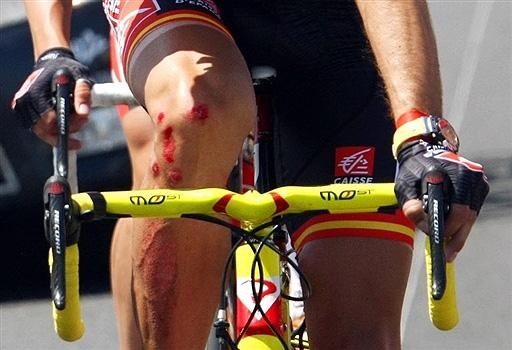




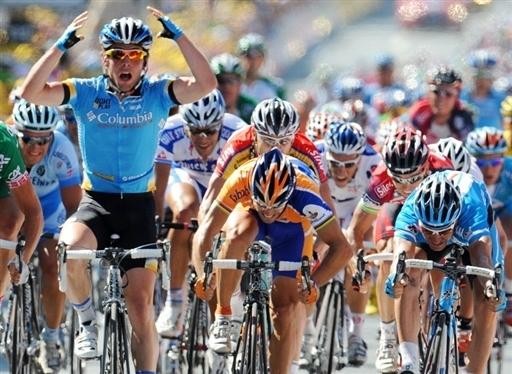
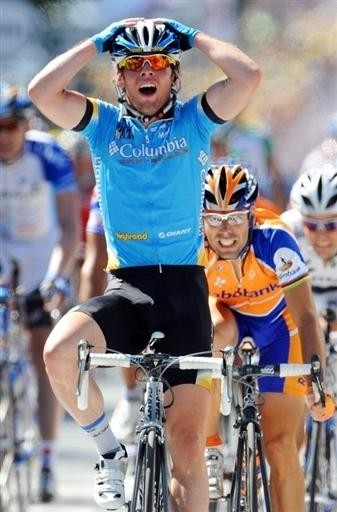

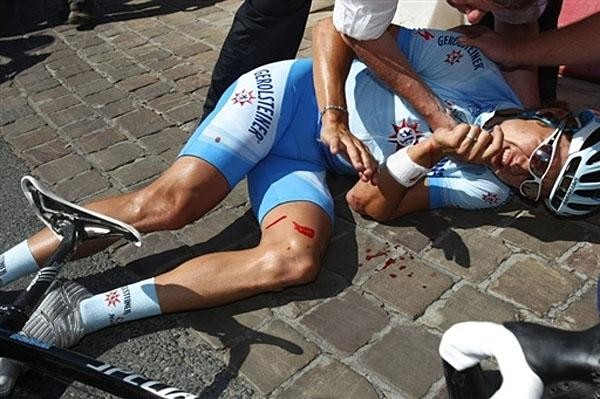
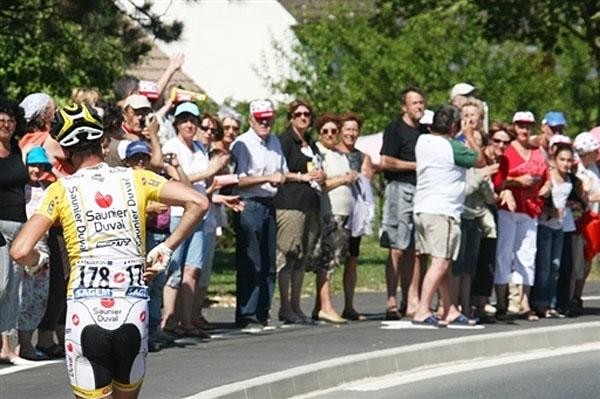
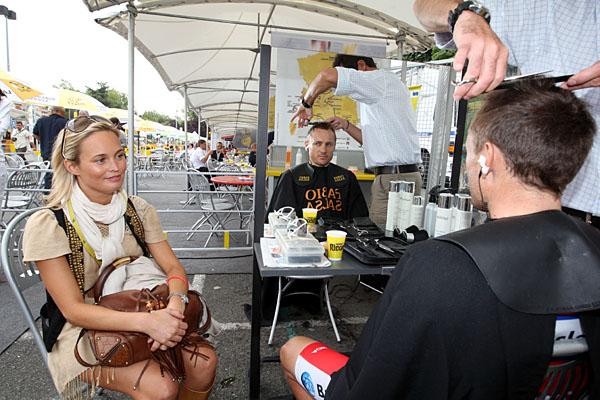
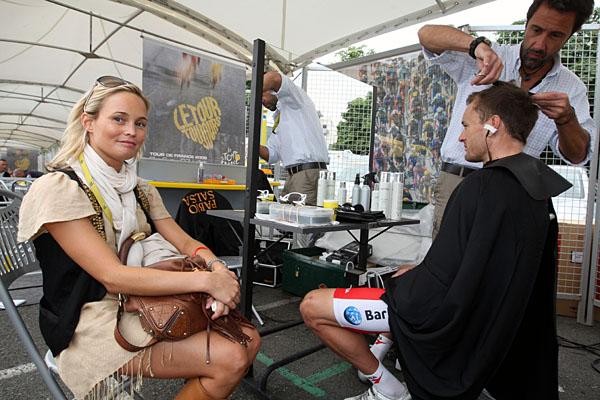
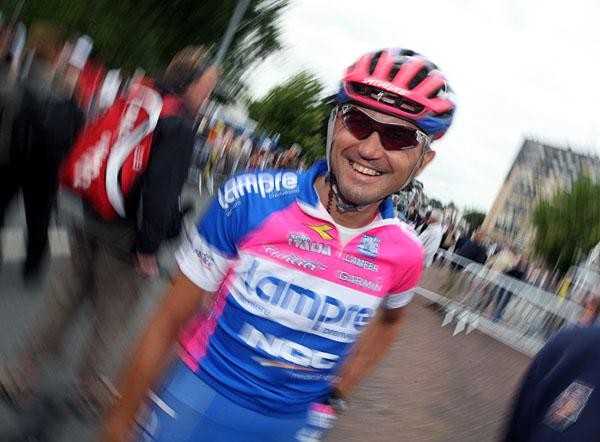
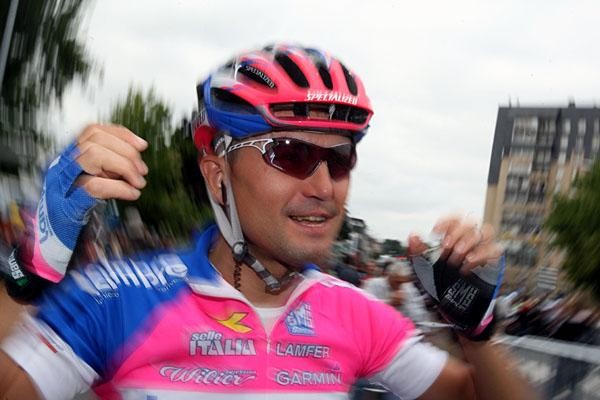
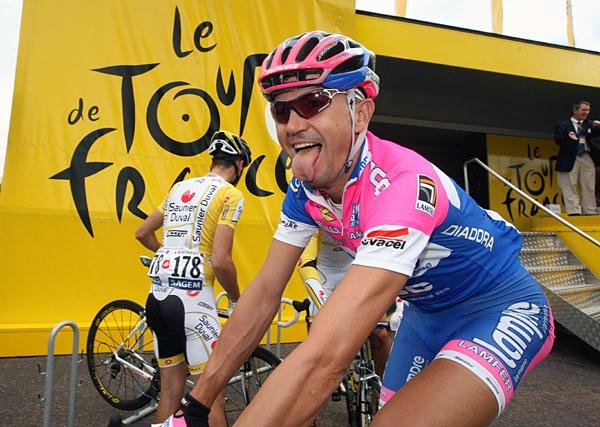
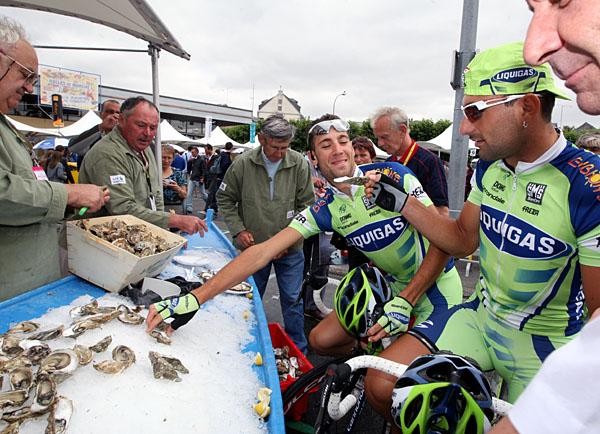
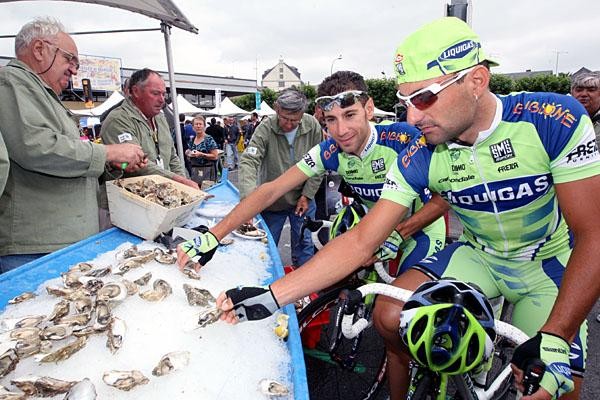

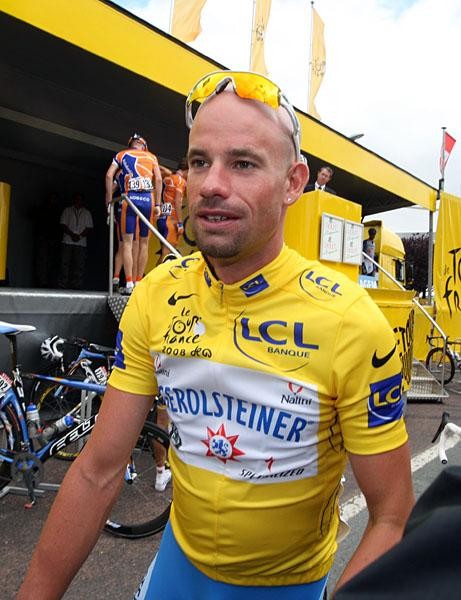
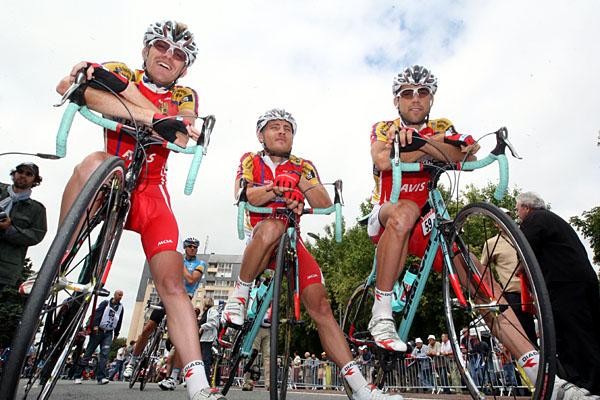
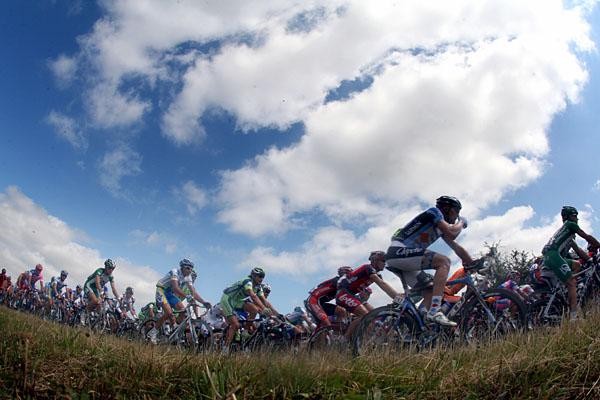
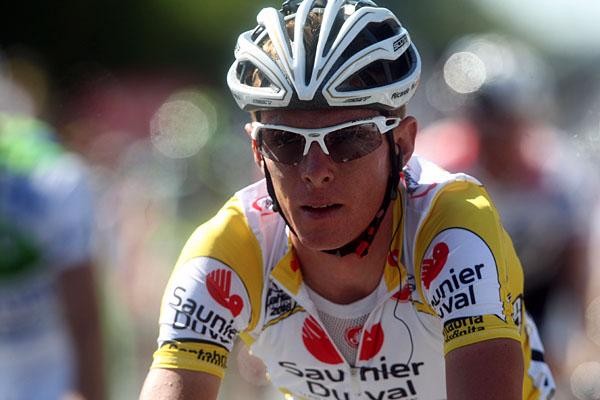
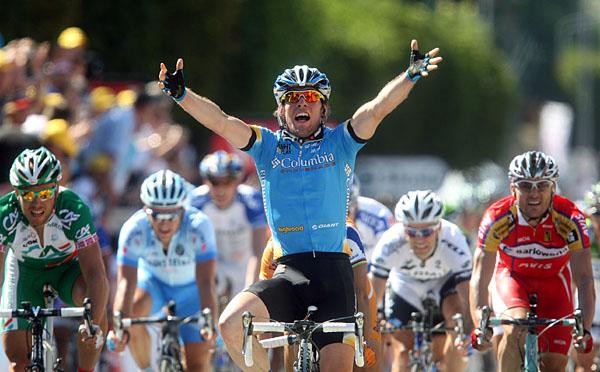
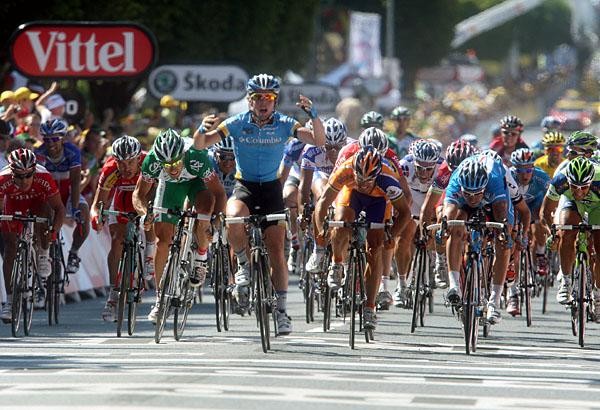
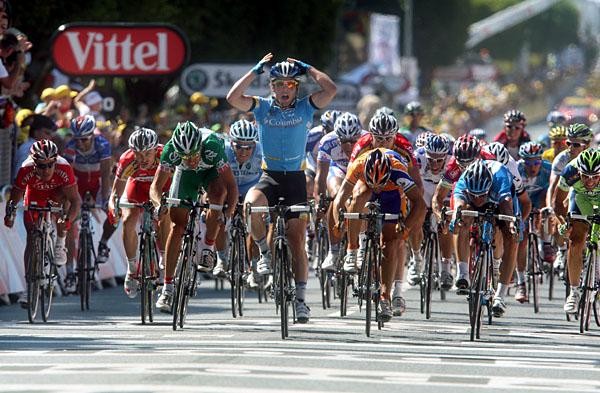
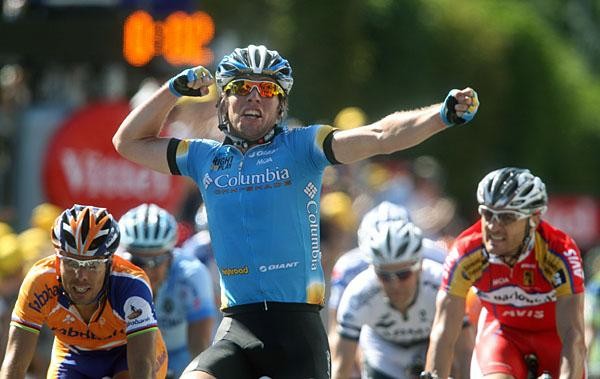
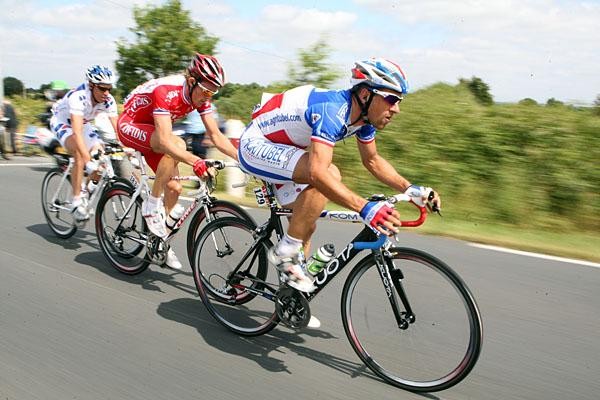
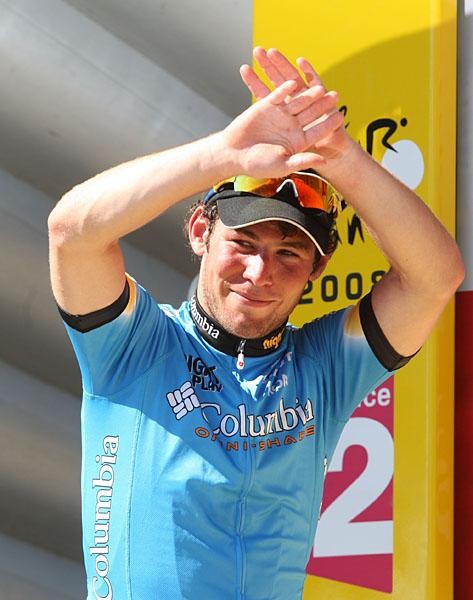
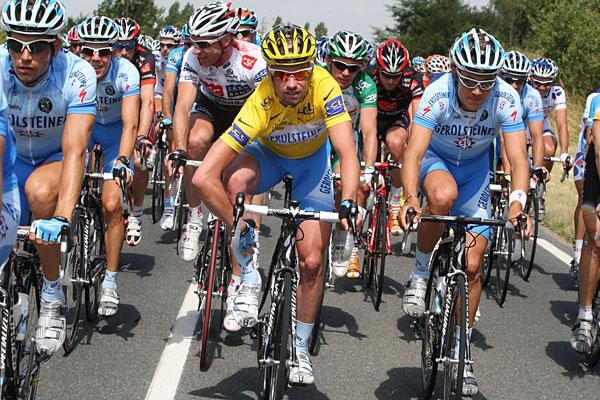
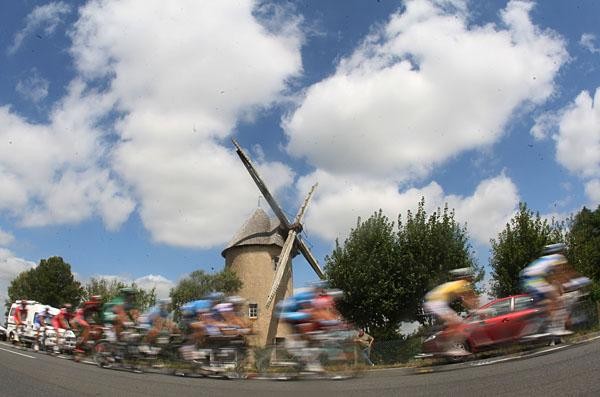
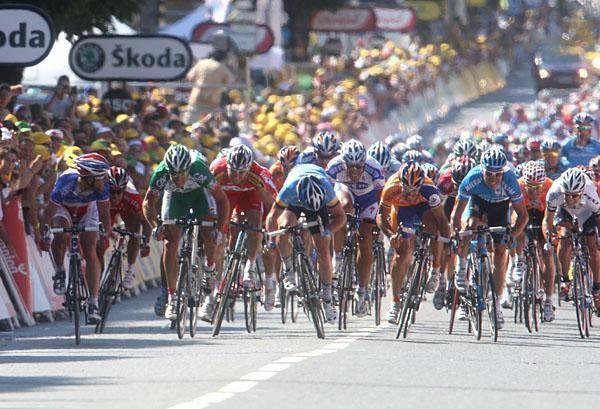
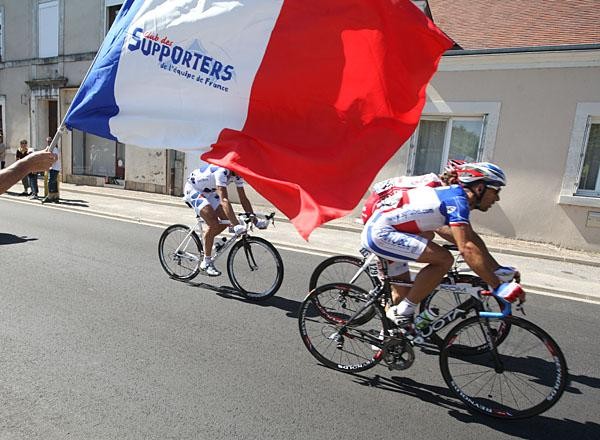
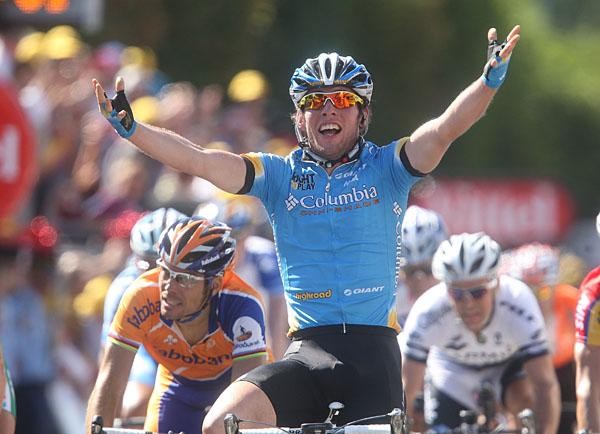
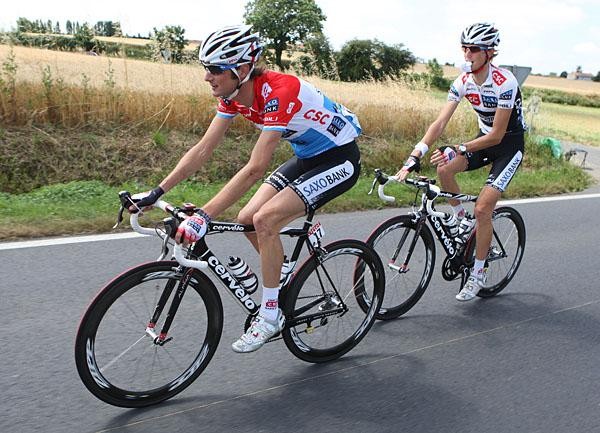
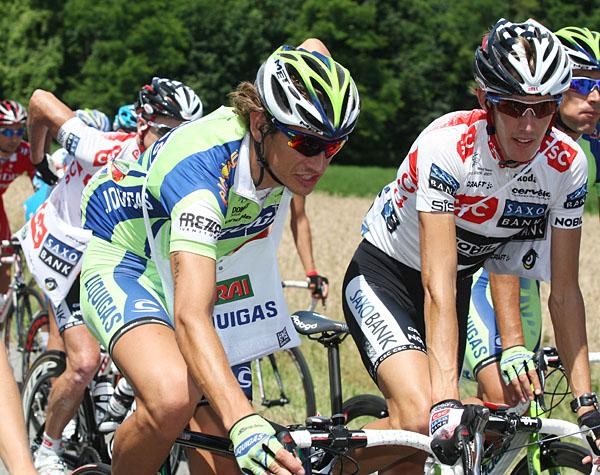
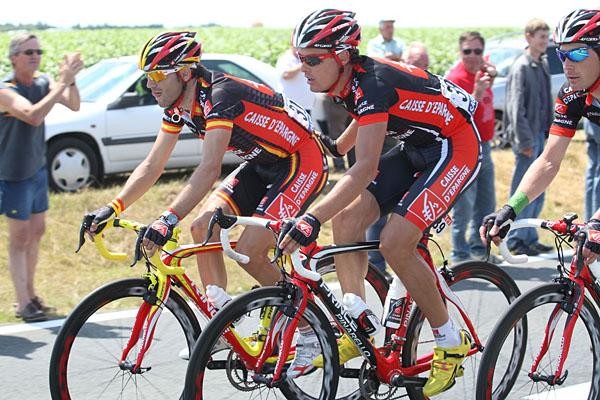
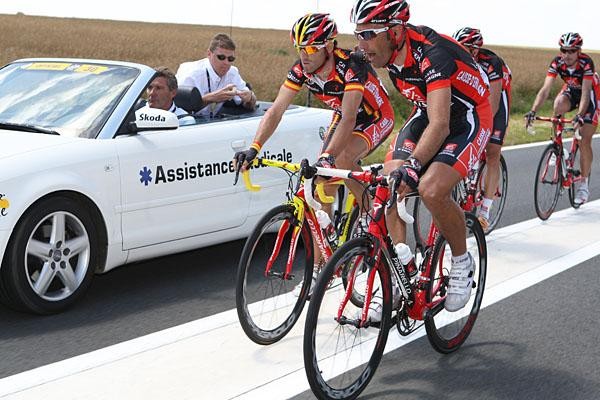
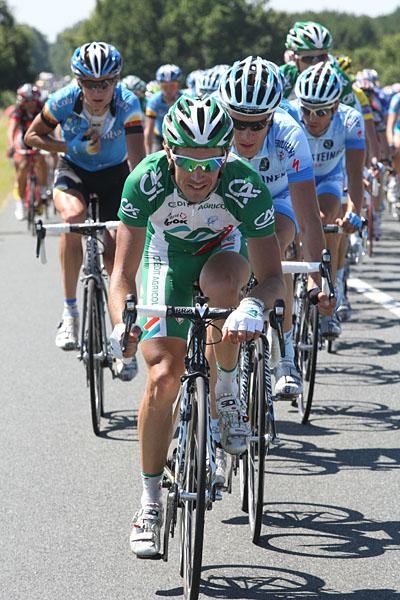
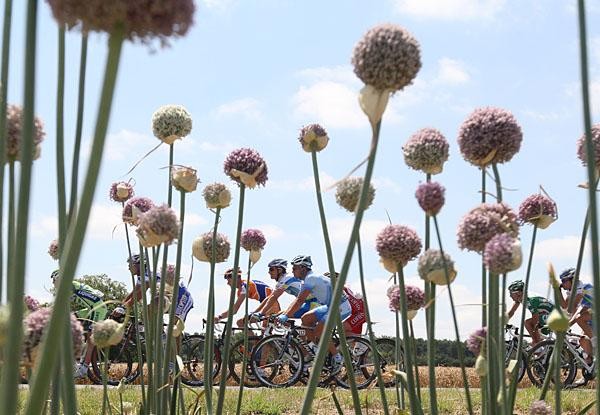
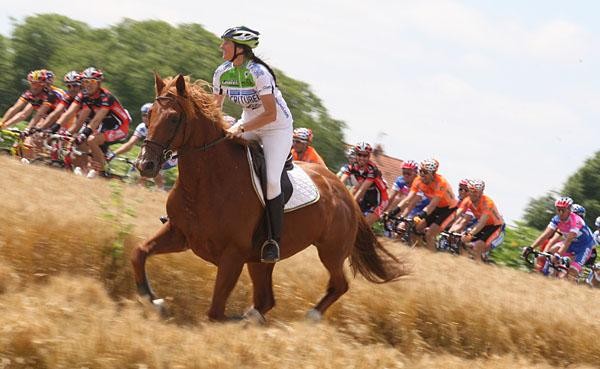
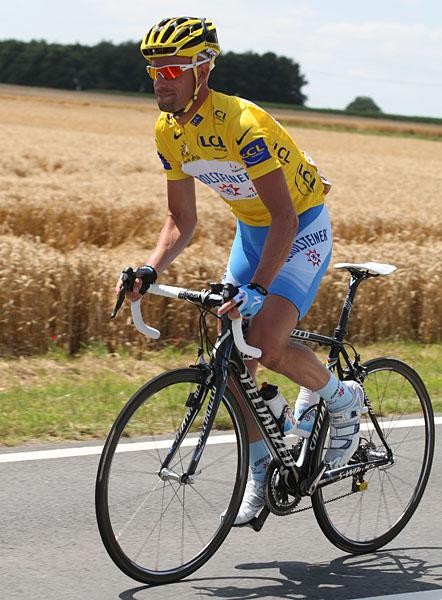
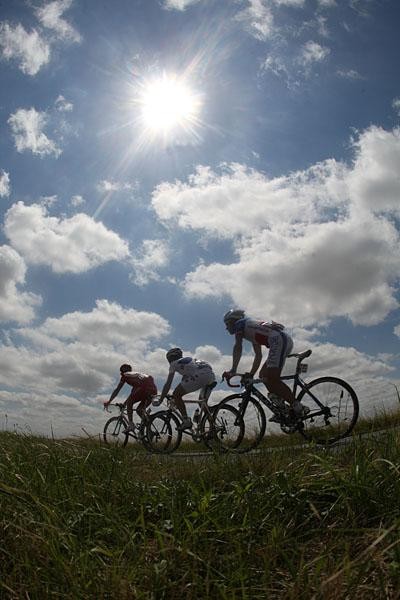
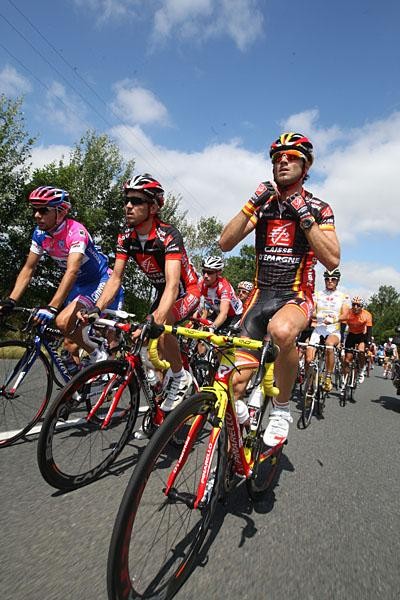
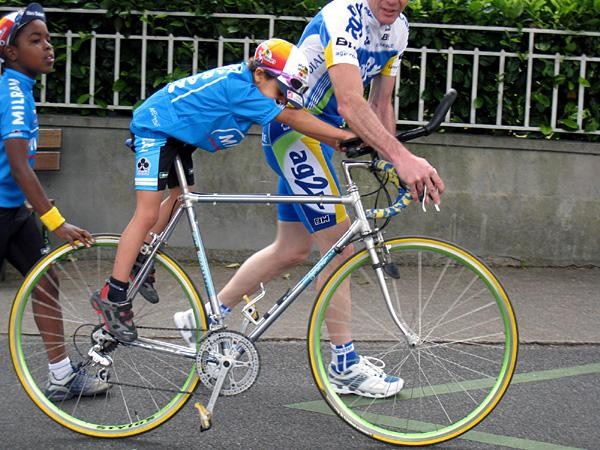
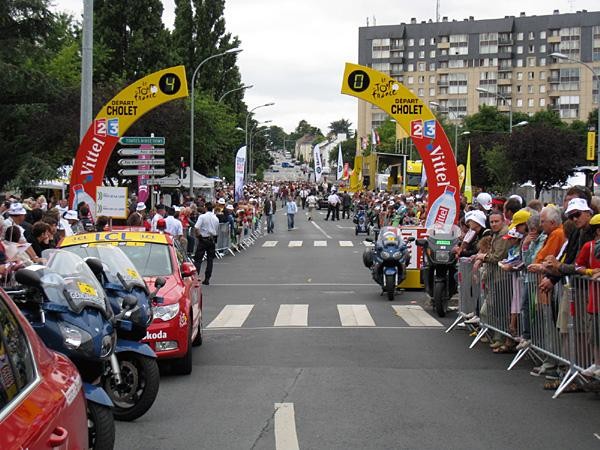
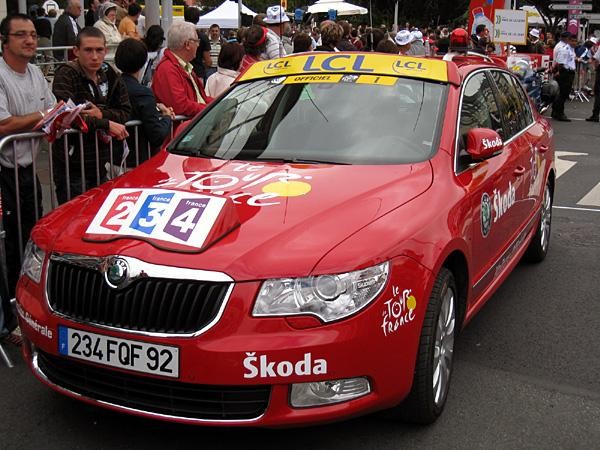
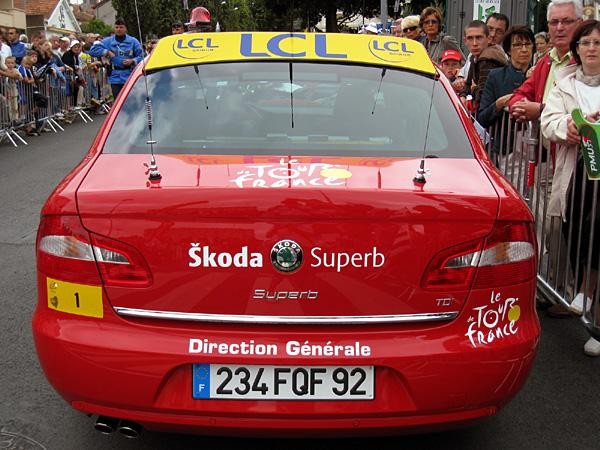
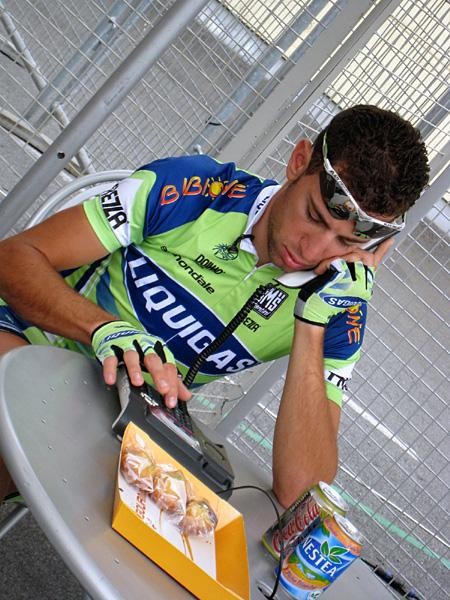
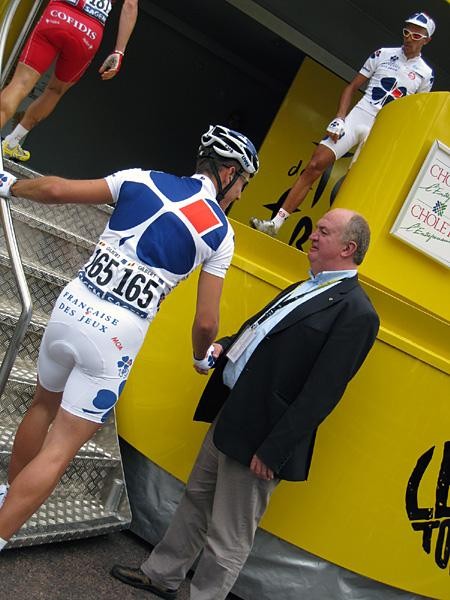
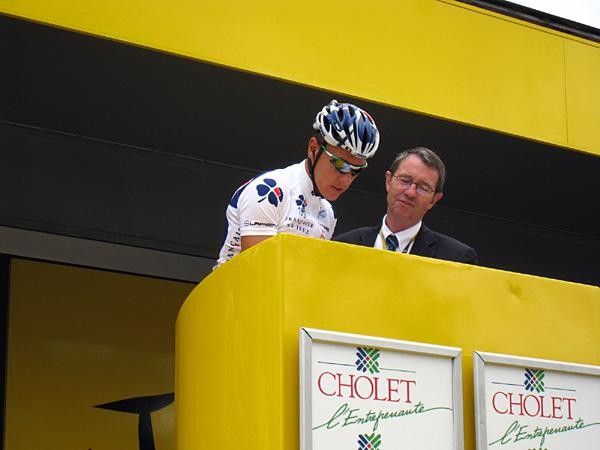
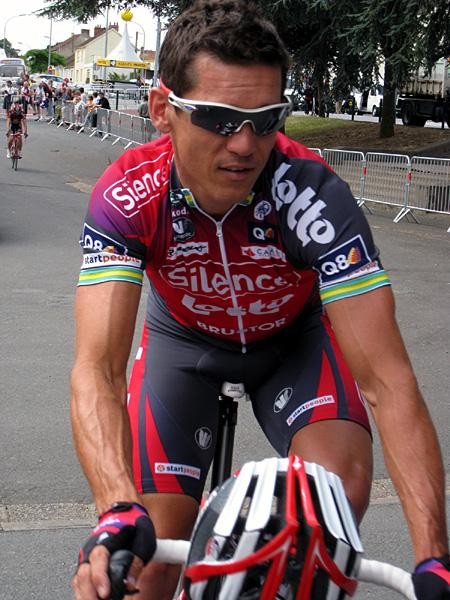
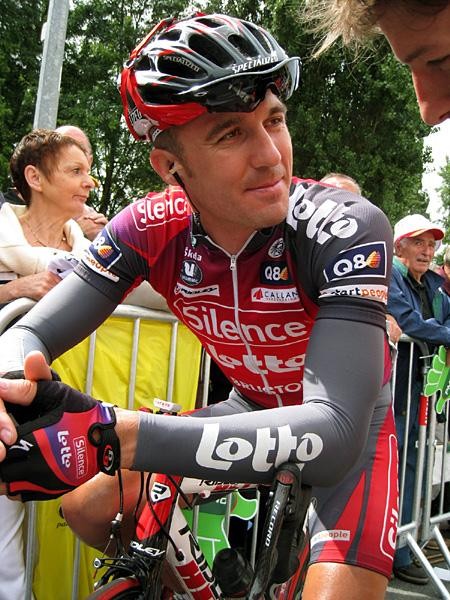
Schumacher passes first day in maillot jaune
Team Columbia's Mark Cavendish claimed his much-anticipated first victory in the Tour de France on the race's longest stage to Châteauroux. The 23 year-old from the Isle of Man benefited from perfect team-work to capture the day's three-man escape and launch his sprint over Spain's Oscar Freire (Rabobank) and Germany's Erik Zabel (Team Milram).
"I could only win with guys like that," said Cavendish, who also garnered two stage wins in the Giro d'Italia in similar fashion.
Two days on from Samuel Dumoulin and Romain Feillu's success, the French riders almost ruled again. Nicolas Vogondy (Agritubel), Florent Brard (Cofidis) and Lilian Jégou (Française des Jeux) were clear for most of the 232-kilometre stage in an escape that only came to a close in the final two kilometres.
The move began to look hopeful when the trio held a 33-second advantage with 10 kilometres remaining. Five kilometres later however, the pace of the Columbia-led peloton brought the gap down to just over 20 seconds. French champion Vogondy was the first to show his cards with an attack at 1300 metres from the finish on Avenue de la Châtre. Jégou gave chase but couldn't get on terms, with the Agritubel rider being swept up 75 metres from the line.
"I would be okay with it if we were caught back at 10 kilometres from the finish, but now I have come so close," said Vogondy on being caught so late in the finale.
Cavendish has often been referred to as the new Robbie McEwen, but with his dedicated lead-out train is quite something else. The Columbia team - formerly named Team High Road - took control of the stage with Marcus Burghardt and Thomas Lövkvist while the speed work was done by Adam Hansen, George Hincapie, Bernhard Eisel and Kim Kirchen in the final 10 kilometres. Hincapie led from 1600 metres, Kirchen took over into the final kilometre while Eisel eased off the gas to gap his captain's rivals.
The US-sponsored team held off challenges from both Liquigas and Quick Step, who were trying to lead out for Francesco Chicchi and Gert Steegmans. "It was a little hectic at the end," described Cavendish. "I lost Gerald [Ciolek]'s wheel and then he picked me up at 1200 metres to go and then Gerald went at 600 metres to go."
The German lead-out man carried Cavendish to about 250 metres, until an early start by Norway's Thor Hushovd (Crédit Agricole) forced Cavendish to fire. He barrelled down Avenue de la Châtre to hold off Freire and Zabel who were charging down his left side.
"I did my best and that is the most important," said Freire, who has three Tour de France stage wins in his palmarès. "I saw the Cavendish was very, very strong."
Italy's Chicchi could not finish off Liquigas' work. "I was a little caught out when the road closed down and was not able to keep the wheel," Chicchi stated after finishing ninth. Belgium's Steegmans finished 12th after his train was derailed by Sébastien Rosseler's sickness and Matteo Tosatto going too soon. "I was in the wind twice. On such a finish with such a speed, being in the wind is like riding into a wall. At 500 metres before the finish, I was already blown up."
As a consolation for his fourth place, Hushovd gained enough points to take the points classification maillot vert from Kim Kirchen. He now leads by three points over Freire. Baden Cooke and Robert Hunter (both Barloworld), Leonardo Duque (Cofidis), Robbie McEwen (Silence-Lotto), Chicchi and Julian Dean (Garmin-Chipotle) rounded out the top ten.
How it unfolded
The départ réel of the longest stage of this year's Tour was taken at 11:42, but the drama had started beforehand when Barloworld's Mauricio Soler, already struggling with injuries from an earlier crash, fell in the neutral zone and abandoned after only 12 kilometres. He quit the race just after a trio of Frenchmen - Lilian Jégou (Française des Jeux), Florent Brard (Cofidis) and Nicolas Vogondy (Agritubel) - had started to accelerate away from the peloton, quickly gaining a lead of two minutes.
The sprint in Argenton-les-Vallées, after 33.5 kilometres, was taken by Jégou, followed by Vogondy and Brard, with the gap at 8'15 already. However, the sprinters didn't want to repeat past mistakes and started to ride tempo, with the lead gradually starting to fall. The trio covered 45.8 kilometres in the first hour. At kilometre 60 the gap was down to 7'40 and after two hours the break reached the 88-kilometre mark.
In the second sprint at Richelieu after 98.5 kilometres, Brard took the points from Vogondy and Jégou as the feed zone approached. Back in the peloton, race favourite Alejandro Valverde (Caisse d'Epargne) hit the deck and required some treatment to his knee, but was then guided back by his team.
With 107 kilometres to go, the gap had dropped to six minutes as the peloton was led by Gerolsteiner, fulfilling its obligation to race leader Stefan Schumacher. It was a somewhat unusual picture, but one that will certainly do no harm to the team's hunt for a new sponsor.
With 97 kilometres to go, Cyril Dessel flatted but was quickly back in the bunch as the gap continued to fall steadily. The sprinters' teams were using different calculators this time after the costly mistake on Monday where the break was allowed too much freedom.
The third hour was ridden at 40.7 km/h, dropping the overall average to 42.9 km/h, but the peloton was still building speed and brought the gap down to five minutes. The final sprint at Grand-Pressigny after 152 kilometres was given to French champion Vogondy, with Brard in second and Jégou third. Crédit Agricole started to help out the blue Gerolsteiner boys and the gap dropped to around three minutes with less than 70 kilometres remaining.
Despite the fourth hour being ridden at 'only' 38 km/h, the break's lead fell inside two minutes with 45 kilometres remaining. The sprinters were looking much happier, salivating at the prospect of a near two-kilometre long finishing straight.
With 25 kilometres remaining the gap was down to 1'30 with the peloton now in full swing. The break was riding its heart out to stay ahead, but the sprinters' teams were all up front: Columbia, Crédit Agricole, Liquigas and Gerolsteiner, riding in support of yellow jersey Schumacher and sprinter Robert Förster.
Pierrick Fédrigo (Bouygues Telecom) then had a mechanical at a bad time and had to fight back to the peloton. Under the 20-kilometre to go banner and the gap was 1'12, then 10 kilometres later George Hincapie suffered a flat tyre. It was a bad time for the Columbia rider, but he was quickly back in the bunch before things got serious.
With five to go a spectator brought down Aurélien Passeron (Saunier Duval-Scott), as the gap was down to just 23 seconds. A sharp right with three kilometres remaining was too tight for the fast-moving bunch and Heinrich Haussler (Gerolsteiner) went down when he came too close to a Lampre rider's rear wheel.
The gap was still 14 seconds, but the peloton was flying along with the Columbia train in full flight for Mark Cavendish. With 1.5 kilometres left Vogondy attacked to try to avoid the inevitable, but was caught a few metres before the line as Cavendish blasted down the middle for his first Tour stage victory.
Stage 6 - Thursday, July 10: Aigurande - Super Besse, 195.5km
After five stages featuring no more than a smattering of fourth and third category climbs – and with none at all for the last three days – the course takes a decidedly hillier turn. After turning east yesterday, the race resumes its southerly course across France's hot Massif Central. The roads will be up and down all day, with two fourth category climbs in the first half.
The final 50 kilometres is where the action starts with two second category climbs, including the 11-kilometre drag up to the finish at Super Besse. This is the Tour's first visit to the small, fortified town of Aigurande, but it has been to the ski resort of Super Besse twice before. The last time it finished here, the stage was won by Dane Rolf Sørensen in a breakaway between the Alps and the Pyrenees.
The ski resort sits 1289 metres high, above the town of Besse-et-Saint-Anastaise, which the stage passes through on the way to the finish. Every year, Super Besse is the host of "La Géminiani," a cyclesportif event named after legend Raphaël Géminiani, who hails from the nearby city of Clermont-Ferrand.
The latest race content, interviews, features, reviews and expert buying guides, direct to your inbox!
Latest on Cyclingnews
-
Do indoor cycling minutes count for more?
To train or not to train indoors – that is the question. We delve into cycling’s most challenging training conundrum to decide which method is best for you and your goals -
Quinn Simmons and Will Barta bring key boost to US presence at 2025 Tour de France
US National Champion riding with Lidl Trek, Barta to make Tour debut with Movistar -
Young British talent leads Picnic-PostNL's 'hunt for stage success' as team unveils Tour de France squad
Onley, Van den Broek, Barguil, Lund Andresen, Bittner also in a squad built to compete on all terrains -
'I opened a B&B, and now I'm national champion' – Why Filippo Conca's spectacular upset win means there will be no Italian tricolore jersey in the pro peloton
Club racer beat former teammates and rivals from pro peloton to clinch biggest victory of his career as Ganna says 'cycling is going to lose a lot'

